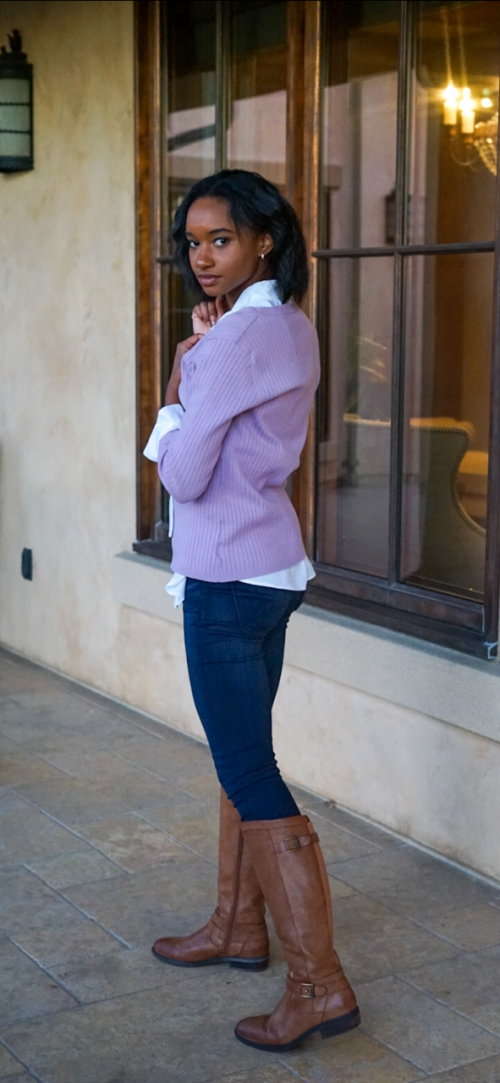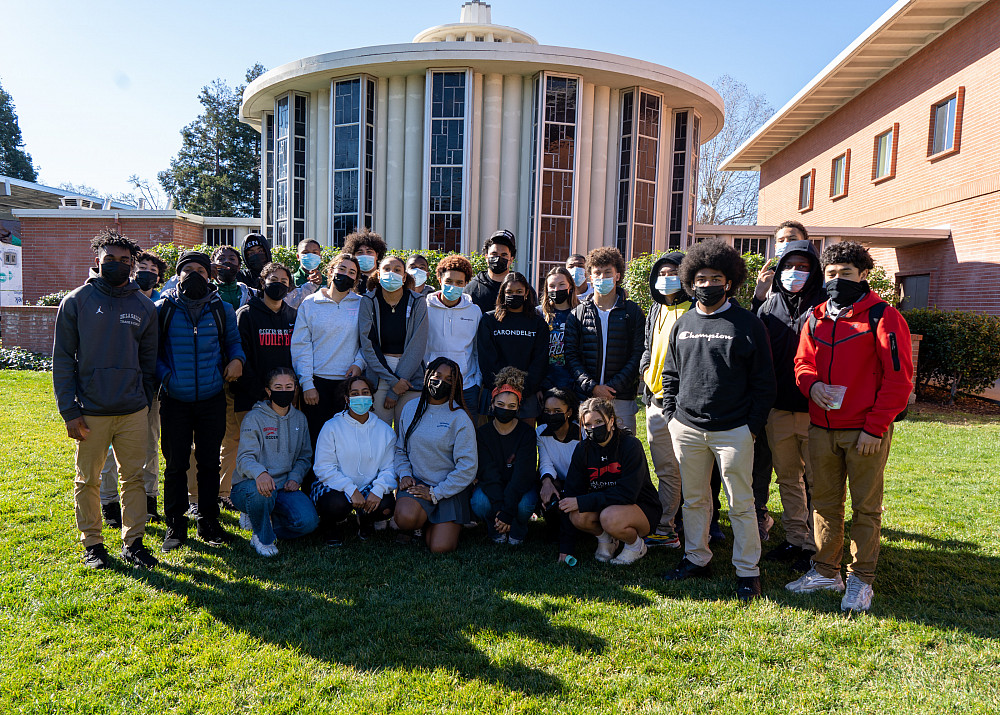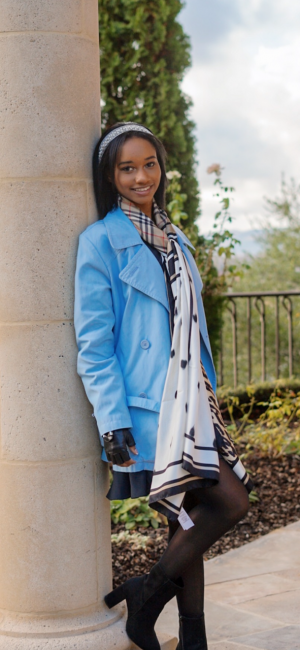For many people, their identity is a source of comfort—a compass and community of love and support by which to navigate life. Yet, my identity as a Black woman at Carondelet has never felt like something I could appreciate in this authentic way because it never felt like something I had the choice to accept. Unlike some of my other identifiers, my Blackness is something that is noticed without permission. Whether or not I wanted to be, I am attached to stereotypes and opinions about the Black community, negative, positive, or otherwise. I had to learn and accept this from a very young age.
Often, the Black community is the first community people attach me to without
Starting at Carondelet, originally, set me back years in my self-acceptance journey. Being thrust into a predominantly white environment where race is openly acknowledged and discussed was uncomfortable for me: someone who went to a 99.9% white middle school, where differences were ignored in order to preserve the comfort levels of others. I felt very unsafe in my identity, and I was afraid that I would be perceived in an unflattering way. Since I’d grown up knowing about negative stereotypes and assumptions about Black people, I became very afraid of accepting myself. I thought it would give others a justification for treating me negatively. So, like any insecure Black girl, I changed my persona to better fit into the realm of “acceptability” and assimilation into white culture.
Historically, ever since integration, Black people have felt the need to “perform” respectability in schools in order to be treated equally by teachers and peers. This sort of generational trauma was encoded in my DNA, leading me to conform to society’s expectations, in a way that is deemed acceptable by my white counterparts. Assimilation into white culture has prompted many Black people to straighten their hair, alter their manner of speaking, and, less commonly, change their names. But, I digress…
It wasn’t until the summer of 2020, with Black Lives Matter marches and protests across the nation, that I realized how toxic my identity denial had become. I felt an inexplicable sadness when my white friends didn’t reach out or ask me how I was doing with all of the unrest and hatred surrounding those who looked like me. I even felt I had to lie to my family when they asked if my friends checked on me—I told them they had because it was embarrassing to be the only one of my siblings who hadn’t had this experience.
Growing up, I was taught that it is worse to make others uncomfortable than it is to feel uncomfortable personally, so I didn’t want to reach out and ask for help. White people, specifically white women, have cherry-picked which aspects of activism to get involved with for years. During the first wave of the Feminism movement, white women fought for the rights of women to vote—only, they excluded Black women and women of color. This sentiment continued throughout the 20th century as other waves of segregated feminism continued. With this historical knowledge in mind, I became disillusioned with the friends I thought would care about and support me. I determined they had no desire to create lasting change, an attitude I now know isn’t true. Looking back, I can recognize that uncomfortable situations force people into inaction. Their lack of verbal support was not out of apathy, but confusion and fear of an uncomfortable situation.
Tossing and turning night after night, an anomaly from my usually healthy sleep schedule, I considered the issue might be in how I view myself. I spent so much time ignoring my Blackness that others started to ignore it as well. This is what I thought I wanted, but once people around me didn’t see the impact of race in my life—emotions, thoughts, actions, reactions, and interactions—I felt a sense of loss. I felt disconnected from my culture: the small, hidden part of me that dictates who I feel connected to and navigate the world with was gone. This was the moment I realized something had to change in my life.

Even though I had been in BSU since freshman year, I never actually went to a meeting until junior year. If I’m being honest, I’ll admit that it was only one virtual meeting toward the end of junior year, and it wasn’t one of the official meetings. Nevertheless, it was life-changing.
At this meeting, Joy Dartez’s sister discussed the experience of being one of the only Black people at Carondelet, and other members of BSU shared their stories of experiencing racism and criticism at Carondelet—specifically relating to their hair.
For many Black women, hair is a source of connection: it connects us to our community, and to ourselves. However, the Eurocentric beauty standards in America have led many to change their hair in favor of a whiter aesthetic. Straightening and perming hair is a way for Black women to assimilate into the culture that tells them their hair is “unkempt” or “nappy.” Many of my Carondelet peers have experienced this and felt forced to change in order to be accepted and viewed as beautiful. Since this was a struggle I also faced for much of my life, it was reassuring to hear that I was not alone.
During this time, I felt conflicted, experiencing the same insecurities as my fellow students while trying to erase parts of myself. However, here, for the first time, I saw the beauty in community.
Identity, as a concept, seems to follow me. I have many different identities that impact me in different ways. But, the most impactful gift my identity as a Black person has given me was authentic friendships…When we allow ourselves to connect with those who are subjected to the same treatment and experiences they are, we start to feel less alone. I felt less alone.
